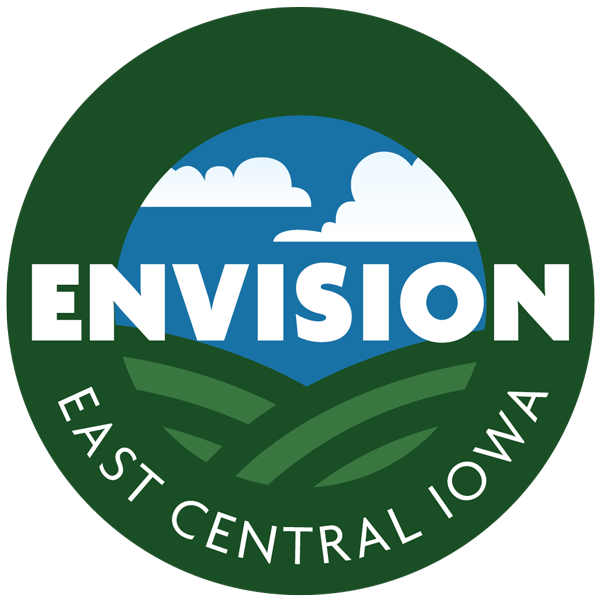
A key focus is a collaborative approach to building an inclusive and resilient future for the region. This project has been an 8-month long visioning and strategic planning process running from July 2021 through March 2022.
Although East Central Iowa’s last CEDS was updated in 2018, regional leadership led by the East Central Iowa Council of Governments (ECICOG) decided to advance the timeline due to the impacts of COVID-19.
According to the EDA’s regulations and guidelines, a CEDS must incorporate the concept of economic resilience (the ability to avoid, withstand, and recover from economic shifts, natural disasters, the impacts of climate change, etc.) and meet the following general criteria:


For more information about ECICOG’s CEDS Project, visit envision-eastcentraliowa.org or contact:
Karen M. Kurt, Executive Director ECICOG
East Central Iowa Council of Governments
Phone: (319) 365-9941 Ext. 122
Email: karen.kurt@ecicog.org